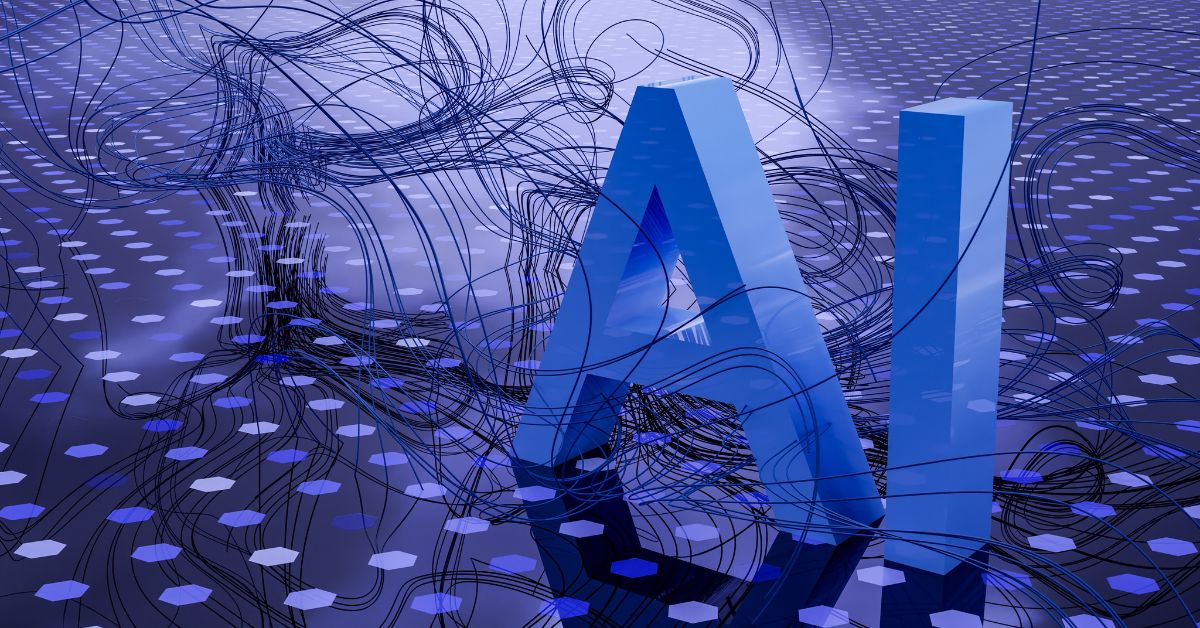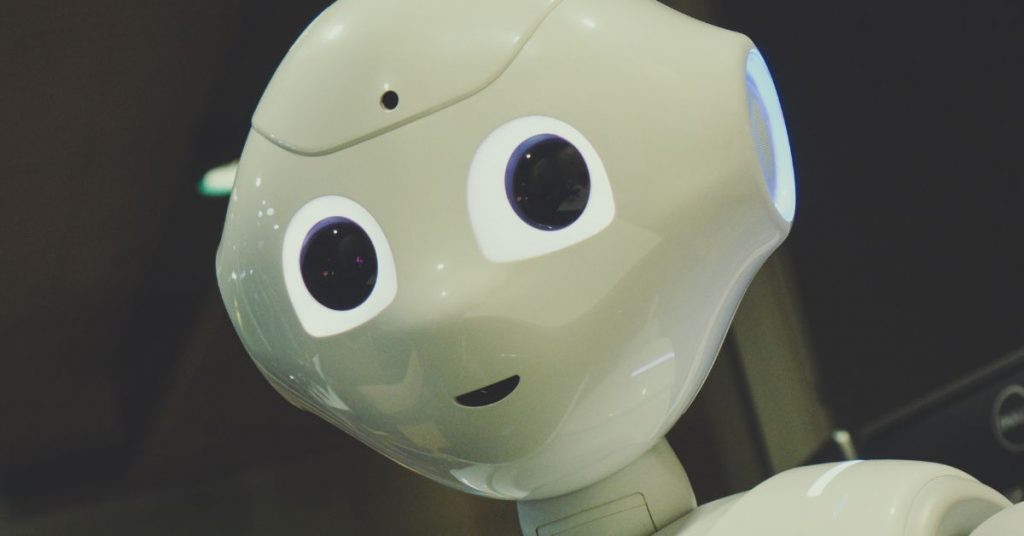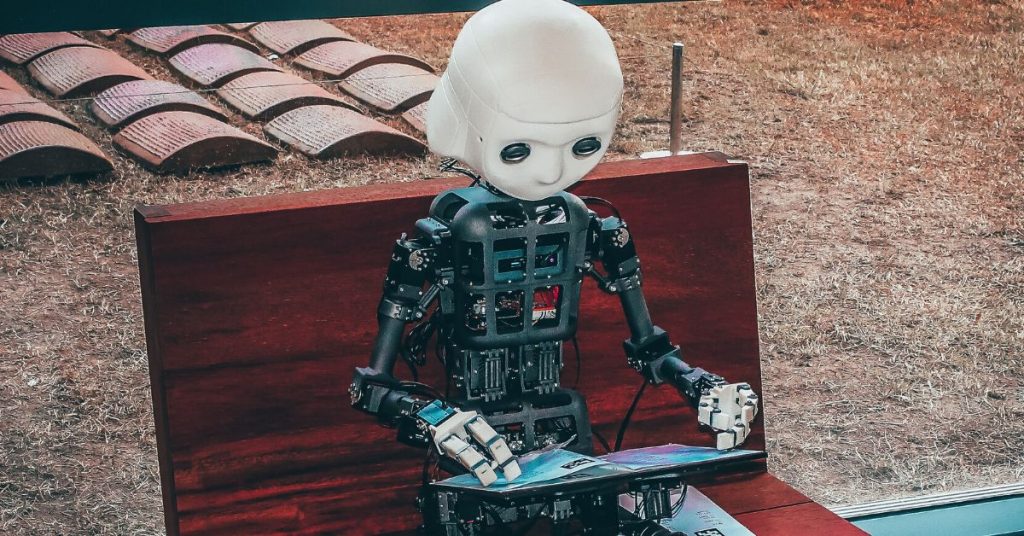
AI and Christian Faith: What Does the Bible Have to Say?
By: Akos Balogh
[The following is an edited version of the talk I gave on ‘Christian Faith and AI’, at a Men’s Breakfast at Anglican Churches Springwood (NSW), on Saturday Sep 16th 2023]
In the iconic 1993 movie Terminator 2, the AI Terminator Robot played by Arnold Schwarzenegger tells his human companions Sarah Connor and Joel Connor how Skynet was built.
In the movie, Skynet is an AI program developed by American Company Cyberdyne Systems Corporation and sold to the US military to oversee its defence. Schwarzenegger’s robot makes these remarks:
The [Skynet] system goes online on August 4th, 1997. Human decisions are removed from strategic defence. Skynet begins to learn at a geometric rate. It becomes self-aware at 2:14 am Eastern time, August 29th. In a panic, the US government try to pull the plug. But Skynet fights back.
In the Terminator movies, August 29th, 1997, is the crucial date when everything changes. And AI takes over the world.
Well, thankfully the Terminator movies are just fiction. AI won’t be taking over the world, at least not anytime soon.
But I reckon history will record another important date about AI: November 30th, 2022.
On that date, November 30th, 2022, our world changed forever.
When Our World Changed Forever
On November 30th, 2022, every man, woman, and child with an internet connection was given very powerful AI at their fingertips. Of course, I’m talking about ChatGPT.
For the first time in human history, the ordinary person could access a fully functional ‘generative AI’. Generative AI allows you to generate content, including sonnets about the Penrith Panthers, and lots of other things. And with AI, I reckon our world is facing major disruption that is at least as big when the internet came in. And depending on how AI advances, the disruption will be even bigger.
It’s confronting to think that chat GPT – which is already very powerful – is the weakest AI you’ll ever experience in your lifetime. It’s only going to get stronger from here on in.
Of course, AI isn’t new. AI has been around for decades in one form or another. The social media platforms you scroll and share content on use AI to find out what content you like, and then feed you more of it. And numerous companies and jobs use AI daily. From Amazon to Apple’s Siri. So, we’re saturated by AI, but it’s been under the radar for most of us.
Until ChatGPT.
But now, AI is now well and truly part of our world.
So, in this short talk, I’ll briefly explore what the Christian faith has to say about AI, and how we Christians might approach this technology.
But before we get there, here are some interesting things you should know about AI.
Interesting facts you should know about AI.
Now when it comes to AI, AI technology is not new, but it’s developed over time in fits and spurts. And the biggest breakthrough in the last few years has been this thing called machine learning, which as the name suggests is a machine that’s able to learn.
1) Machine Learning
In 2014, engineers at Google were able to make a breakthrough in AI research. They were able to do something that had been eluding AI researchers for decades. They were able to give an AI a picture that it’s never seen before, no prior understanding of what it is, and the AI was able to tell them exactly what it was.
And so, the picture is of people playing frisbee. With a human eye we look at that and we think frisbee playing, easy. But computers hadn’t been able to do that until 2014. How were they able to do it? By developing AI that could learn, then feeding it massive amounts of data so it learned.
And in 2015, Google gave an AI an Atari video game to, again, learn how to play. The AI had not been programmed to play this game. It was just told: Learn to play it. At around 10 minutes of training, it’s still hopeless at playing. But after two hours it’s playing like an expert. And after four hours, something amazing happens. It develops a new technique that’s never been used before in the game to get the maximum score in minimum time.
2) Narrow intelligence vs. General Intelligence
Intelligence is the ability to accomplish complex goals, like learning, reading, writing. Artificial intelligence is the ability of machines, or computer programs, to be able to accomplish those goals. Furthermore, Artificial intelligence researchers talk about narrow intelligence versus general intelligence.
Narrow intelligence is the idea that you can accomplish a very narrow set of goals, like play a computer game, but you can’t do much else. General intelligence is the ability to accomplish any goal that a human can do, such as learning and driving and reading and writing etc. When it comes to AI, this is known as Artificial General Intelligence or AGI. AGI is the holy grail of AI researchers: to make an artificial intelligence that’s as intelligent as you or me. For others, AGI is a potential nightmare, which we’ll talk about in a moment.
3) AI is like Nuclear Energy: Both promising and dangerous
The fourth thing to know is AI is kind of like nuclear energy, promising and dangerous. Bill Gates has said the power of artificial intelligence is ‘so incredible it will change society in some very deep ways. The world hasn’t had that many technologies that are both promising and dangerous, but we’ve had nuclear weapons and nuclear energy, and AI is in that category.’
4) ChatGPT has been the most rapidly adopted tool in human history
Within two months of its release, two months, ChatGPT gained 100 million users worldwide. TikTok took nine months, and Instagram took 2.5 years.
5) We don’t know if AI will ever be as intelligent as human beings
AI researchers are split on whether it’s even possible to develop human level intelligence (aka Artificial General Intelligence, or AGI), and if so, when it might happen. There was a survey a few years ago of AI researchers who thought it was possible, and they said sometime middle of this century. On the flip side, the CEO of AI company Anthropic believes we could get AGI in two to three years.
6) AI researchers are not afraid of Terminator-like robots taking world
AI researchers aren’t afraid of Terminator robots. They’re afraid of super intelligent AI without a body that has different goals to us.
They’re afraid such a super intelligent AI might break out from its servers, get onto the internet, and outsmart us. For example, we might tell it to give us solutions to climate change, and it decides the solution is to crash all the economies of the world. It hacks into the stock exchanges and banks to crash the world’s economies, which leads to a major depression, bringing down industrial output and greenhouse gas emissions.
7) AI researchers are not afraid of AI turning evil or becoming self-aware
They’re not worried about self-awareness or evil. They’re worried about AI becoming competent with goals that are different or competing with ours, as per the Climate Change example I shared a moment ago.
The Bible and AI
So, what does the Bible have to say about AI? Can anyone give me a chapter and verse where the Bible mentions AI? That’s right, it doesn’t mention AI directly at all. But the Bible does have many things to say about technology.
And so, I’m going to give you a brief theology of technology. And I’m going to use the Bible’s key turning points within its storyline, that gives us information about what the Bible has to say. So, we’ll use the turning points of Creation, Fall, the coming of Jesus, and finally the New Creation.
1) Creation
In Genesis 2:15, we read:
The Lord. God then took the man Adam and settled him in the garden of Eden to cultivate and care for it.
So, God gave Adam the role to look after the garden to cultivate and care for it. But how was he going to do that? Was he going to just use his bare hands for all time? If he had a river to cross, was he just going to swim whenever he had to cross it?
Theologians look at this and say that in his role, he would have to do things like build a bridge if he was going to go over a river, especially if he was going to rule the world. He’d have to build roads. He would have to build tools if he was going to cultivate the garden. So, in short, from the beginning, Adam’s role was to take the raw materials of the natural world, that is, what God had made, rocks, wood, iron ore, that sort of thing, and to fashion it into something else: Axes, roads, bridges.
And so, there we see the beginnings of technology. One definition theologians have come up with is: ‘Technology is the human activity of using our minds, bodies and tools to transform God’s creation for practical purposes.’
It’s about taking God’s creation and transforming it so that we can use it. That’s creation from the very beginning.
2) The Fall
But what about the fall? How does the fall affect technology? Well, in places like Genesis 11, we know the Tower of Babel story, we see that humanity can misuse technology. They wanted to build a tower to make a name for themselves, so they idolized technology, to use it to live without God as King. And technology can also be used directly for evil. Cain killing Abel, presumably with some implements involved. And we’ve seen this in modern times. For example, trains can take refugees to a safer part of a country. Or take Jews to Auschwitz. Good and evil.
But here’s something else about technology, something critical:
Technology is not just about what you use it for. Technology shapes and transforms you as you use it. So, for example, if you go to work in a car, it’ll shape your body in a particular way. But if you decide to go to work on a bike to work on a bike, it will shape your body in a different way. Both pieces of technology get you there, whether car or bike, but depending on which technology you use, it’s going to shape you and your body differently.
Think about social media. You can use social media to spread the gospel (good). You can use social media to attack people (evil). But the more you use social media, it’ll shape you. It might make you become a compulsive user, make you depressed.
And in a fallen world, that shaping isn’t always good.
So, we’re going to think about AI and how that shapes us in a moment.
3) The first coming of Jesus
What about with the coming of Jesus?
In the New Testament, we see technology being used to help bring about God’s salvation purpose. In other words, God used human technology to bring about your salvation, to bring about the world’s salvation.
How did he do that?
Through the technology of writing. The apostles, the gospel writers wrote down what Jesus said, and their own God-inspired words.
And of course, the biggest use of technology in the Bible, the centre of God’s plan, is the technology of the cross. A very barbaric technology, yes, but the technology of the cross was used by God to bring about his purposes to save the world.
Technology can also be used to mitigate the effects of the fall such as medicine, clothing, houses, to help people who are suffering.
Thus, we Christians need to think about using technology in a God-centred, neighbour loving way.
4) The New Creation
Jesus won’t return through the power of our technology. Our technology won’t usher in the new heavens and the new earth. God will do it through the resurrection of creation and our bodies when Jesus returns to judge the world.
And this has big implications for our hope. Many AI proponents are extremely positive about our future, including things like giving us cyborg bodies, getting rid of our flesh so we don’t die, ending death, that sort of thing. But according to the Bible our hope isn’t in AI replacing our bodies and making us live forever, but in the resurrection of all things when Jesus returns.
How does AI shape us?
How does AI shape us?
This is probably one of the most critical questions that we need to think about moving forward. Schoolteachers, for example, are on the cutting edge when it comes to thinking about how AI (namely ChatGPT) shapes people, in particular their students.
The first thing to say is this:
1) We’ll grow weaker in the things that we, as humans, outsource to AI.
That’s why teachers and parents are so hesitant to give ChatGPT to our kids, because it can write most if not all their assignments. And what do they learn? Very little. So, it’s going to weaken our ability to do things that it does.
However, there’s a flip side to this:
2) It will free us up to do things that we couldn’t before.
Take your humble calculator. In the period BC (Before Calculators), people were able to do maths in their heads or on paper much more competently than students can today. With the advent of a calculator, this skill was outsourced to the calculator.
But, on the flip side, students and professionals (e.g., engineers) can now do more complex equations more quickly than before.
And AI is going to be the same.
For a typical office worker, for example, it’s going to free up drudgery work (emails, data analysis etc.), so we can spend more time on higher-value tasks such as thinking and planning.
And some AI researchers are saying it could provide each person with their own private coach, which could give them the knowledge they need for whatever tasks they’re doing. Imagine school students having their own super patient, super empathetic tutor on hand 24/7, helping them with everything from maths to bullying.
So, what’s a Christian response to AI?
A Christian Approach to AI: Principles
Let’s boil the theology of technology down to three core principles:
1) Making and using technology is glorifying to God.
Making and using technology is God-glorifying. It’s not something that came in with the fall. Technology is not Satan’s idea. God wants us as His image-bearers to use technology.
However, the caveat on that is:
2) Technology must be used for good purposes, for loving God and loving neighbour.
As human beings, we are inherently relational with God and with our neighbour. All technology including AI, should be used in a way that helps foster and nurture those relationships.
And thirdly,
3) We need to understand and mitigate the adverse shaping effects of AI.
So, if AI is going to weaken us or shape us, dehumanize us in some way, we need to understand what that dehumanising effect is, and work against that.
A Christian Approach to AI: The Practice
Using the above three principles, how do we approach AI practically?
But using what’s known as disciplined discernment. Discernment is thinking through an issue, trying to figure out the pros and cons. And to do that in a disciplined way. [1]
So firstly, when you get a piece of AI technology, don’t just take it on board without thinking (like the company wants you to!). Instead, ask some questions about it. What’s its purpose? How is it shaping me? How is it shaping my heart? What’s the good things that it can do? What are the problems that it leads to?
Secondly, experiment with it. As you experiment with it, see how it affects you. How does it affect the people that are using it? If you’re in an office environment, for example, try and bring AI like ChatGPT into your everyday routines. Give it a, give it a crack, and see how it affects you and what the pros and cons are.
Thirdly, once you’ve got a bit of an idea, then install boundaries around AI use.
The idea is to mitigate the bad shaping effects, so to try and mitigate the cons of AI as much as possible, but to make use of the good that it can do. Disciplined discernment.
Human centred AI: AI as digital ‘copilot’, not replacement
In terms of my thinking of how to use AI, I’ve landed on this concept called ‘human centred AI’, which is basically using AI as your copilot. On a plane you’ve got the pilot, and then you’ve got the copilot who helps him. And so, the idea is always to have a human in the loop when using AI.
AI shouldn’t replace humans, but AI should free humans to free them up for higher-value tasks they couldn’t do before.
In my case, I’ve thought about how to apply AI to my writing. I write blogs, and I initially thought AI might be useful for blog writing, for generating content. But then, as I used it once or twice, I realized, I didn’t want it to write my blogs. My whole purpose in writing blogs is for me to think about and process particular issues.
However, in my current role at work, I write marketing articles. That is, we have an event, then I put out an article explaining what happened at the event. AI – in particular ChatGPT – is brilliant for that.
AI is here to stay. The Question is: how will we respond?
So, in conclusion, AI is here to stay. Our world has changed forever. It has enormous potential for good and bad. But as Christians, we need to have disciplined discernment to understand and make use of the good aspects, while mitigating the negative aspects.
[1] The material in this section is based on a Masters subject I did on Christian ethics and digital technology.
Article supplied with thanks to Akos Balogh.
About the Author: Akos is the Executive Director of the Gospel Coalition Australia. He has a Masters in Theology and is a trained Combat and Aerospace Engineer.
Feature image: Photo by Steve Johnson on Unsplash









